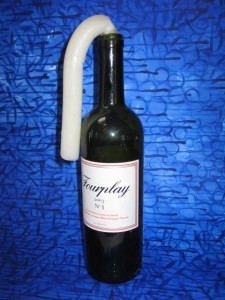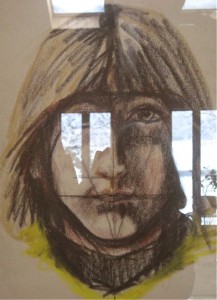
-Photo by Jan Ketchel
We are living in a time of great splintering. The energy of the many fragmented voices is fast and furious. The single-mindedness of independent parts, warring against any challenge, vying for supremacy at any cost, is the energy of now. We are a world that has dispersed its wholeness, and those independent parts are not presently interested in finding their way home.
Ironically, when wholeness is achieved boredom eventually sets in. It’s as natural as the fullness of an inhalation alternating with the dispersement of exhalation. When fullness reaches the condition of completion the spark to adventure splinters the wholeness, as points of curiosity launch to scout out new possibilities.
We live this process individually every day. When we close our eyes to our solid waking dream of daylight, our constrained wholeness splinters into a host of adventures in the infinity of our nightly dreams. When we awaken in the morning our nightly indiscretions from the limits of rationality dissolve quickly from memory, as waking consciousness clothes us for another day in the limits of solid time/space reality.
Nonetheless, the gifts of our nightly adventures innervate our daily lives, as synchronicities of knowing seek to jar our consciousness to remember; to remember the dreams, to remember the lessons, to integrate the nightly knowledge gained that opens up a broader perspective of who we really are and all that is possible.
It’s all about remembering. Remembering is the technology of wholeness. Trauma fragments, yet also sends scouts of us out into infinity. Recapitulating, retrieving the parts of our fragmented whole, brings us into greater reality. That greater whole restores innocence, but a greater reconditioned innocence, tuned to navigate the dark, as well as the light of reality.
The goal is hardly the restoration of lost innocence; it’s the birthing into matured innocence, prepped for new adventure. Like the flip side of a divorce that on the one side shatters the security of the archetypal family, on the other side launches all members of a family into a new world of knowledge beyond the myths of the nursery.
The blank slate of our birth is just another nursery myth to securely swaddle our awakening, alienated scout into a new life. When will we awaken to the deeper truth that our longing for soulmate is actually a protective cover from the impact of the accumulated love of our many lives, those whom support us from behind the veils of this earthly sojourn.
Jan, in her recently published final book of her five-volume Recapitulation Diaries Series—Dreaming All The Time—takes us even deeper into the mystery of our birth, as she discovers that she’d agreed to the challenge of her life before she arrived in her blank slate innocence of birth. Why would anyone agree to such a traumatic life?!
When I ponder Christ’s knowing fully of, and agreeing to, the traumatic fate that awaited him when he fragmented from the Mothership to be born in human form, I ask, why? Really? And then the answer comes: What was his greatest message? Love! Love thy neighbors, whoever they may be, whatever they have done to ye! Love thy petty tyrant and you will truly refine love, the prerequisite to advance into the greater wholeness of infinity.
When will we be ready to drop those veils and bring to our wholeness the discoveries of this fragmented life? Once again, it’s all about remembering. Remembering is the road to wholeness. Remembering is the great inhalation.
But, to answer the question, as to why we fragment? We fragment to explore whole new worlds, to satisfy our deepest curiosity, to learn, to discover, to adventure, to grow, to augment our wholeness, to change, to deepen our love, and yes, at times to avoid the challenge of integrating all of our selves, all of our experiences. The list is endless, the challenge great.
But do remember to breathe! Completely exhale, then breathe in a full inhalation. Hold for a few moments, deeply appreciating the wholeness encased within. Then let go, in exhalation, freely releasing the wholeness of the breath to disperse and travel freely, until we meet again, new and renewed, imbued to the fullest with the prana of the journey.
Breathing in and exhaling outwards, ever outwards,
Chuck




